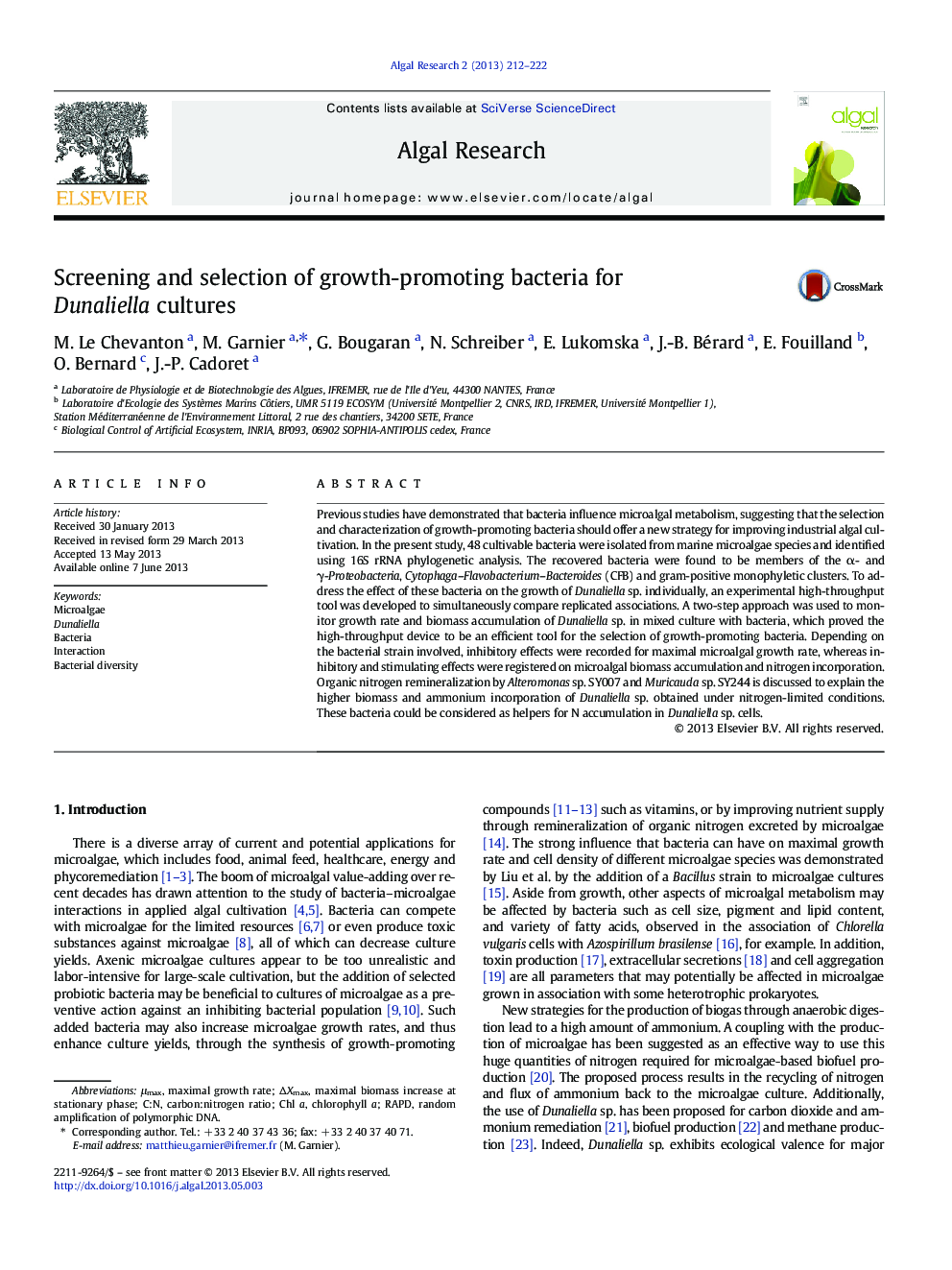| Article ID | Journal | Published Year | Pages | File Type |
|---|---|---|---|---|
| 1742066 | Algal Research | 2013 | 11 Pages |
•We developed a high-throughput tool to evaluate microalgae-bacteria interactions.•We selected growth-promoting bacteria for Dunaliella sp.•The growth promoting bacteria enhanced nitrogen incorporation in Dunaliella cultures.
Previous studies have demonstrated that bacteria influence microalgal metabolism, suggesting that the selection and characterization of growth-promoting bacteria should offer a new strategy for improving industrial algal cultivation. In the present study, 48 cultivable bacteria were isolated from marine microalgae species and identified using 16S rRNA phylogenetic analysis. The recovered bacteria were found to be members of the α- and γ-Proteobacteria, Cytophaga–Flavobacterium–Bacteroides (CFB) and gram-positive monophyletic clusters. To address the effect of these bacteria on the growth of Dunaliella sp. individually, an experimental high-throughput tool was developed to simultaneously compare replicated associations. A two-step approach was used to monitor growth rate and biomass accumulation of Dunaliella sp. in mixed culture with bacteria, which proved the high-throughput device to be an efficient tool for the selection of growth-promoting bacteria. Depending on the bacterial strain involved, inhibitory effects were recorded for maximal microalgal growth rate, whereas inhibitory and stimulating effects were registered on microalgal biomass accumulation and nitrogen incorporation. Organic nitrogen remineralization by Alteromonas sp. SY007 and Muricauda sp. SY244 is discussed to explain the higher biomass and ammonium incorporation of Dunaliella sp. obtained under nitrogen-limited conditions. These bacteria could be considered as helpers for N accumulation in Dunaliella sp. cells.
